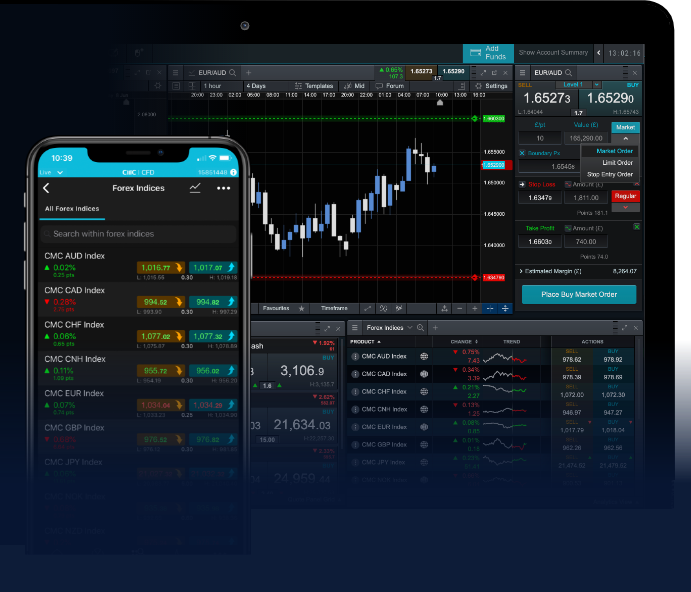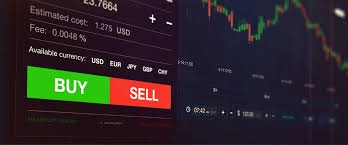
Is Forex Trading Profitable? Understanding the Risks and Rewards
Forex trading has become increasingly popular as a potential means of generating income. However, the question remains: is forex trading truly profitable? To answer this, we must explore several facets of forex trading, including market dynamics, potential risks, and effective strategies. Additionally, it’s crucial to recognize that success in forex trading is not guaranteed, and numerous factors influence profitability. In this article, we will delve into these aspects, with insights on how tools like is forex trading profitable Global Trading PK can aid traders in their journey.
Understanding Forex Trading
The foreign exchange market, or forex, is the largest and most liquid financial market in the world. Traders exchange currencies with the aim of making a profit. The forex market operates 24 hours a day, five days a week, across different global financial centers. This enables traders to engage in trading at almost any time.
Forex trading involves trading currency pairs, where one currency is bought while the other is sold. For instance, in the EUR/USD pair, a trader is speculating on the future value of the euro against the U.S. dollar. Traders aim to predict the price movements of currencies based on various factors, including economic indicators, political events, and market sentiment.
Market Dynamics
Understanding the market dynamics is crucial for achieving profitability in forex trading. The forex market is influenced by a multitude of factors:
- Economic Indicators: Economic reports such as GDP, employment rates, and inflation data can significantly impact currency values.
- Political Stability: Political events, elections, and geopolitical tensions can create volatility in currency markets.
- Market Sentiment: Traders’ perceptions and reactions to news events can drive currency prices. This emotional aspect of trading is often underestimated.
Potential Risks in Forex Trading
While forex trading can be profitable, it is not without risks. Here are some of the primary risks that traders should be aware of:
- Leverage Risk: Forex brokers often provide high leverage, which can amplify both gains and losses. While potential profits can be substantial, losses can exceed initial investments.
- Market Volatility: The forex market can be highly volatile, and currency prices can change rapidly. Traders can face significant losses if they are not equipped to manage volatility.
- Emotional Decision-Making: Trading based on emotions rather than logic can lead to poor decision-making and financial losses. Many traders struggle with emotional control.
- Unforeseen Events: Unexpected events, such as natural disasters or sudden political shifts, can significantly impact currency prices and leave traders exposed.
Strategies for Successful Forex Trading
To enhance the potential for profitability, traders should implement effective strategies tailored to their trading style and risk tolerance. Here are some common strategies:

1. Fundamental Analysis
This strategy involves analyzing economic indicators and news events to make informed trading decisions. Traders closely monitor economic reports, interest rates, and political events to anticipate currency movements.
2. Technical Analysis
Technical analysis relies on analyzing historical price data using charts and indicators. Traders look for patterns and trends to forecast future price movements. This method is popular among day traders and scalpers.
3. Risk Management
Successful traders prioritize risk management by setting stop-loss orders and position sizing. By limiting potential losses, traders can protect their capital and ensure longevity in the market.
4. Trading Psychology
Maintaining a disciplined mindset is essential in forex trading. Understanding emotional triggers and implementing strategies to manage emotions can lead to better trading outcomes. Techniques such as meditation and journaling can aid in maintaining mental clarity.
Is Forex Trading for Everyone?
It’s essential to recognize that forex trading may not be suitable for everyone. Potential traders should assess their financial situation, risk tolerance, and personal goals before diving into the market. Education and practice are also critical; novice traders should consider demo accounts to build their skills without risking real capital.
Moreover, engaging with reputable trading platforms and communities can provide valuable insights and support during the learning phase. Using tools like Global Trading PK may also guide traders in navigating the complexities of the forex market.
Conclusion: Weighing the Pros and Cons
In conclusion, forex trading can be profitable, but it is accompanied by significant risks and challenges. Success requires a thorough understanding of market dynamics, effective strategies, and rigorous risk management. By being aware of the emotional aspects and staying disciplined, traders can enhance their chances of success.
Ultimately, aspiring forex traders should engage in continuous learning, practice prudently, and keep their expectations realistic. With the right approach, forex trading can be a rewarding endeavor, but it’s vital to stay informed and prepared for the inherent complexities of the market.